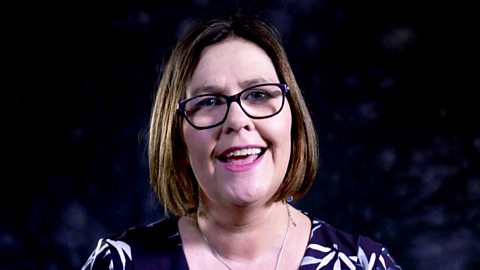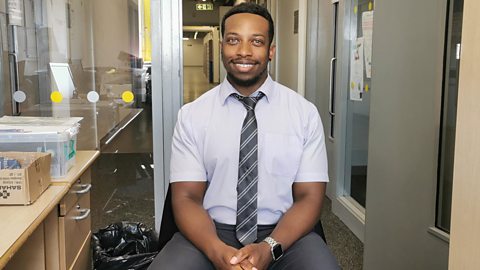
Teacher and author Dr Emma Kell reflects on the range of experiences teachers have had during the Covid-19 pandemic.
This has been the most bizarre school year any of us has ever experienced. As we gear up for the most well-earned break ever (please do take a proper break, we urge you), letŌĆÖs take a moment to consider the huge range of experiences of school staff over the last five months.
The mantra ŌĆśin it togetherŌĆÖ feels about as far from accurate as a mantra can be: this period has laid bare the gulfs, not just within our society but in our school system, and that these cannot and must not be ignored.
EveryoneŌĆÖs feelings have been acute during this period. Everything we have known and taken for granted has been overhauled. This quote, attributed to Maya Angelou, feels more apt than ever: ŌĆ£People will forget what you said. People will forget what you did, but people will never forget how you made them feel.ŌĆØ
The nature of the countryŌĆÖs response to the pandemic has meant that schoolsŌĆÖ responses have been hugely diverse, with a matter of days in between government announcements and action. Time for collaboration has been almost non-existent.
LetŌĆÖs not for a second forget the pressure school leaders have been under since March either ŌĆō the vast majority have literally not had a break. LetŌĆÖs be understanding of the fact that theyŌĆÖve had minimal guidance and information to act upon when action has been required, and letŌĆÖs be forgiving of perceived ŌĆśmistakesŌĆÖ in their unenviable position.
Teachers, too, have been under pressure. A few might be feeling contented-tired, in the secure knowledge that they and their schools have done everything within their power to support their young people and have done the best job they possibly could. More will be feeling that sense of something important forgotten ŌĆō a job not done.
Others are feeling beleaguered by headlines which shout that schools have failed to meet the mark, have let their children down, have enjoyed an extended holiday.
Some are feeling well-supported, valued as humans as well as educators, and as if they have been well looked-after by their colleagues.
Others are feeling overlooked, abandoned or ignored ŌĆō left alone to worry about their own health concerns, those of loved-ones, the never-ending juggle of childcare and work, or the biting isolation.
Many have been into school by now. Initially itŌĆÖs deeply unsettling. You canŌĆÖt get close enough to see the mischievousness in the childrenŌĆÖs eyes, to check on the basic signs of neglect or distress that your professional instinct has taught you to do.
You canŌĆÖt pat a shoulder or pass over a pencil sharpener or pick up an exercise book to show off a brilliant piece of work. But itŌĆÖs so wonderful to see the children again.
Many will have been tactfully asked about how they are on a regular basis ŌĆō through individual calls from line-managers or surveys. They will have been asked if they feel secure to come back to work and if their personal circumstances are likely to cause issues. They will have been consulted over timings and practicalities.
Others will feel that they have been pressured to go back at times and in circumstances that leave them deeply unsettled ŌĆō not because they are ŌĆślazyŌĆÖ as some media outlets might have it, but because, in the words of one school leader, ŌĆśI donŌĆÖt want to feel responsible for somebody in our community dying.ŌĆÖ
Some will feel more passionately than ever about their choice of career. In the words of a new teacher, ŌĆśI feel more convinced than ever that this is the right job for meŌĆÖ. Others will be feeling tired, jaded and doubtful about teaching itself or the context they are in.
Mistakes have been made. Struggles have invariably been experienced. Ultimately, we must ensure these make us stronger, as both individuals and as part of a greater system. It must be clearer than it has ever been that the huge responsibilities and high level of accountability that comes with working in schools can never be underestimated, we must also ensure our staff are treated as ŌĆśhumans first, teachers secondŌĆÖ.
Going back to ŌĆśhow we do thingsŌĆÖ is simply not an option ŌĆō letŌĆÖs take this holiday to recoup and regroup so that we can return with fresh perspectives and the strength we will need for the challenges ahead.

Education Support
If you're a teacher who is stressed or worried about anything you can call
Talk to a trained counsellor on our free, confidential helpline on 08000 562 561. It is available 24/7 and open to anyone working in education.
The │╔╚╦┐ņ╩ų is not responsible for the content of external websites. By clicking the link to access the external website you will be redirected to a site controlled by a separate organisation. Please note that the │╔╚╦┐ņ╩ų is not the data controller of the personal data you enter into the external website and it is not responsible for the services provided by any external organisation. When using an external website, you are subject to their Terms and Conditions and Privacy Policy.

Sticking with it. document
Teacher and writer, Dr Emma Kell shares her reasons for sticking with teaching when you might be tempted to quit.

Lessons in resilience: Earning your stripes. document
Dr Emma Kell ŌĆō Teacher, Doctor of Education and author of 'How to Survive in Teaching', shares her top tips for developing resilience.

What does it mean to be a black teacher in the UK today? document
Assistant headteacher Josiah Isles writes about his experiences within the education system as a black teacher in the UK.
